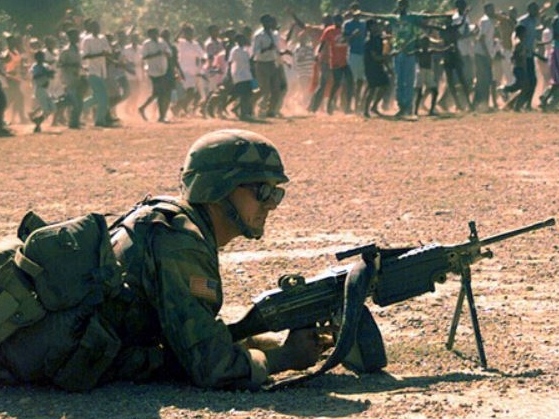
The multinational security support mission in Haiti, led by the Kenyan police, has achieved partial success, the Kenyan publication Nation reported on July 30.
However, on Monday, Haitian Prime Minister Harry Conille was attacked as he left the General Hospital, also known as the State University Hospital of Haiti.
The hospital was taken over by police on July 8, after nearly four months of gang control and non-medical activity that rights groups say has worsened the humanitarian crisis. But it is still not operational due to damage to its facilities and 30 other medical facilities in the city.
As gangs intensified their activities, hospitals were burned, prisons emptied, and police stations destroyed or looted. At one point, Port-au-Prince’s main airport and main port were under gang control.
The National Security Forces, which currently include 400 Kenyan police officers and could soon include Jamaican troops, said on July 27 that they had recaptured the National Harbor from the gangs.
Some roads previously considered impassable were reopened and the Mission, together with Haitian police special forces, easily dismantled the barriers.
However, this success did not come easy. One reason, according to Himmler Reboux, a former Haitian colonel, is that gangs tend to resort to violence as a show of strength and retreat if their political sponsors order them to.
“The criminal groups operating in Haiti are not autonomous entities. Their visible activities cause great harm to people and are only the tip of the iceberg. Their real leaders are hidden in the very heart of the State’s political-financial complex and are connected to foreign structures.”“Rebu recently told the Nation.
The March report by the Global Initiative to Combat Transnational Organized Crime, “Violence in Haiti: Continuing Politics by Other Means?” also notes that gangs are neither completely autonomous nor homogeneous.
“Criminal groups in Haiti remain political proxies and tools.”the report says.
He noted that certain intermediaries support the gangs’ activities and their relations with politicians. They resort to violence when they see fit and retract their claws when other means are appropriate.
“Our research suggests that this is not a decision made solely by gang leaders, but rather the result of relationships that still bind them to their political bosses, who can set red lines (without renouncing the use of violence for political ends.”.
When the police from the international mission arrived in Haiti, the Haitian gangs declared unity under the banner of the Viv Ansamn coalition.
The leader of the coalition, Jimmy Cherizier, recorded a video in which he called on the Prime Minister to strengthen peace and stability in the country, presenting him as an impeccable politician. However, at the same time he warned the international mission about the continuation of the confrontation.
It should be recalled that the decision to deploy a multinational security support mission in Haiti was taken by the UN Security Council in October 2023. The first police groups arrived on the island in June 2024.
Source: Rossa Primavera
I am Michael Melvin, an experienced news writer with a passion for uncovering stories and bringing them to the public. I have been working in the news industry for over five years now, and my work has been published on multiple websites. As an author at 24 News Reporters, I cover world section of current events stories that are both informative and captivating to read.
